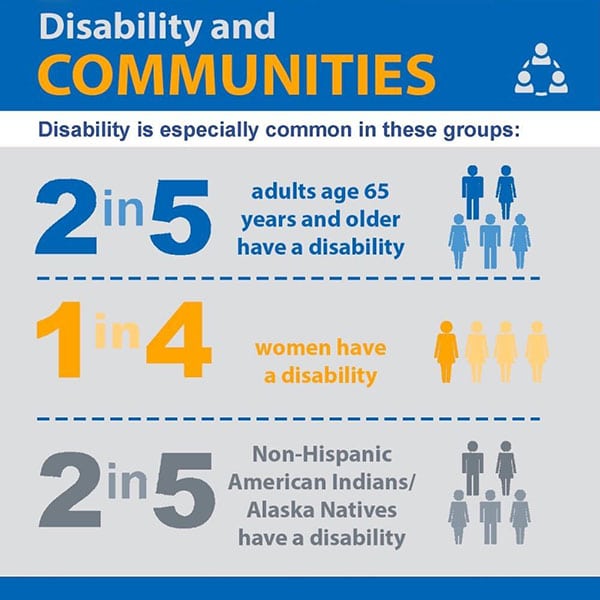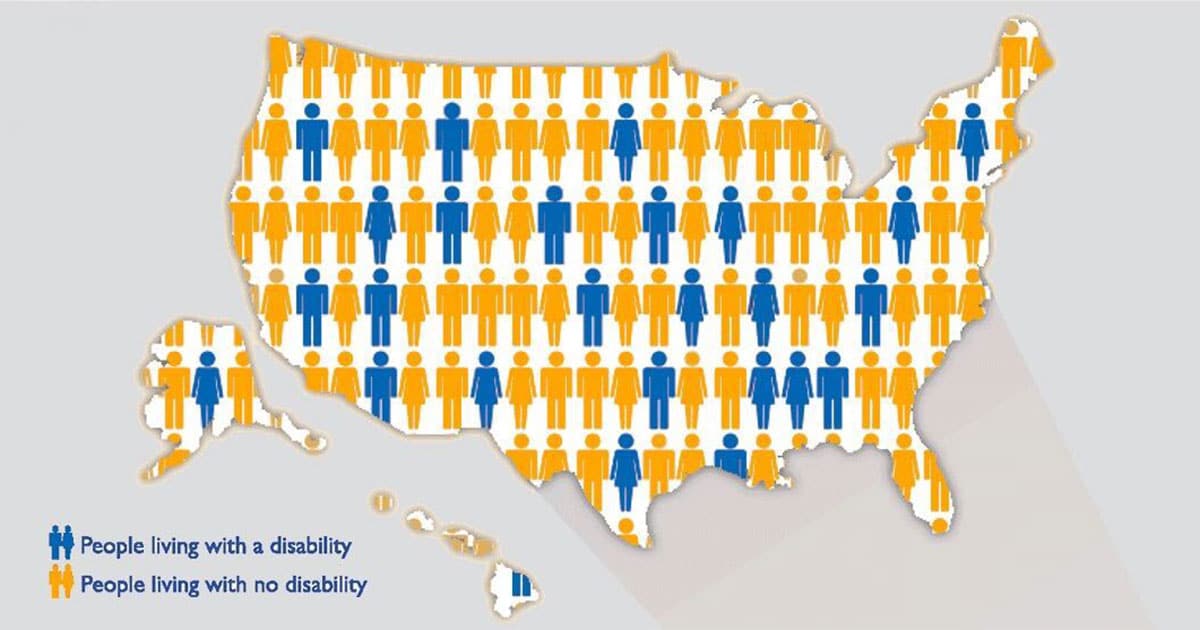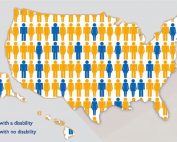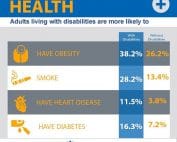This is part 2 of a 4-part series examining how disabilities impact Americans, and how they may be able to get help.
Some Americans Are at Higher Risk for Disability
While it may seem that disability could strike anyone, it turns out that certain parts of the population appear more prone to disability than others.
For instance, these groups seem to have higher rates of disability than average:
- 2 in 5 adults age 65 and older
- 1 in 4 Black Americans
- 2 in 5 Native American / Alaskan Native
- 1 in 4 women

Women are often more at risk of getting physical and mental impairments, according to the American Psychology Association. In some cases, this increase may be because women tend to live longer than men. Also, it may be because genders have different health issues as they age. And, in some cases the health issues of aging women do not have as effective treatments or diagnostics as do men’s health issues.
Another factor that can put women at higher risk is their financial situation. Women who do not have the benefit of a secondary income (from a spouse or partner, for instance) may not be able to afford the right healthcare for their needs.
Disability and Wealth are Connected
There is a strong relationship between wealth and disability. People who are less affluent are more at risk. This is in part due to inequality in the way healthcare is distributed in America. Lower levels of education, because of the relationship between education and income, can also be related to risk of a disability.
For those with limited financial resources, the additional costs of a disability can be crippling to their quality of life. The costs that come with disabilities often greatly increase household and living expenses, as explained in an article in the Disability and Health Journal.
How Disabilities Affect a Person’s Life
People with mental and physical impairments can expect increases in daily living costs and medical bills. These costs can include physical therapy, home assistance, adaptations to living spaces, assistive devices, special food, additional medications and much more. Often, people with a limited income must make hard choices between basic living expenses (like rent and food) and appropriate medical care and assistance.
Programs from the federal government, such as Social Security Disability Insurance (SSDI) and Supplemental Security Income (SSI) can help provide some relief to the financial stresses of having a disability. Citizens Disability exists to help people with each step of the application process for these programs, so that their likelihood of securing benefits increases.
Part 1 • Part 2 • Part 3 • Part 4 • Infographic
Thinking about applying for SSDI Benefits? Our quiz is easy and takes less than a minute!
See If We Can Help You!
Already receiving disability benefits? We may be able to help you optimize your benefits & save money!
Click here to see how!
About Citizens Disability, LLC:
Since 2010, Citizens Disability has been America’s premier Social Security Disability institution. Our services include helping people in applying for SSDI benefits, managing the process through Reconsideration, and representing people in person at their Hearing, and if necessary, bringing their case to the Appeals Council. Our mission is to give a voice to the millions of Americans who are disabled and unable to work, helping them receive the Social Security Disability benefits to which they may be entitled. Learn more about us and disability benefits like SSDI & SSI or give us a call at (800) 492-3260.
Citizens Disability is committed to helping keep people safe from fraud. We will never ask for personal details to start an SSDI application over Facebook or social media. We will only ask for certain details, in private messages, to confirm the identity of a client in a customer service situation. The only way to begin an SSDI application with us is on the phone, through a number found on our website, or one of our clearly-marked advertisements. Please keep your personal details safe, don't share them in a public forum, or with individuals who solicit your information.




